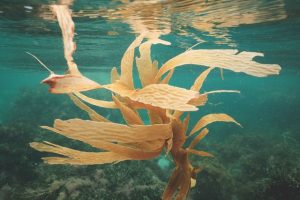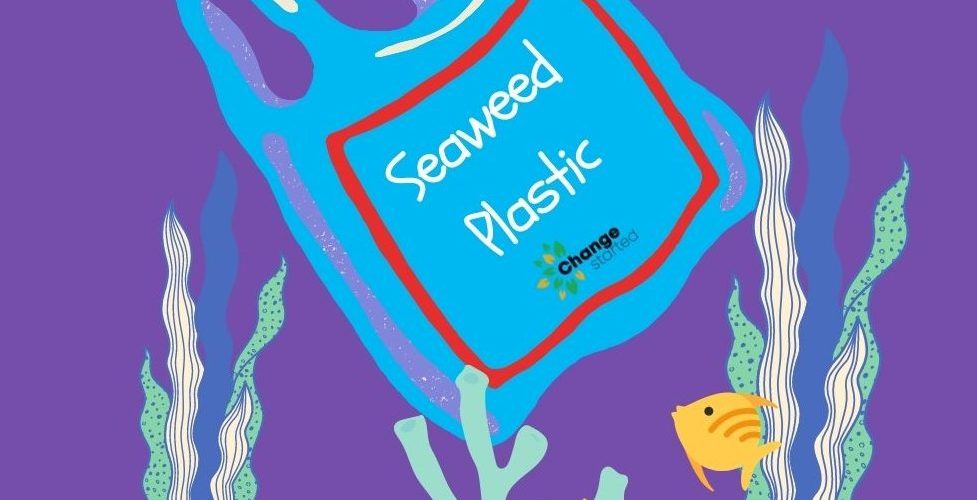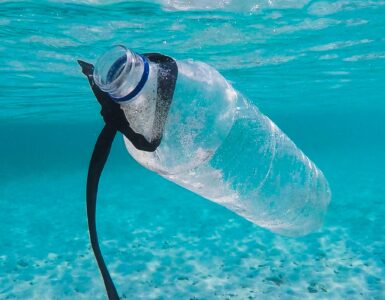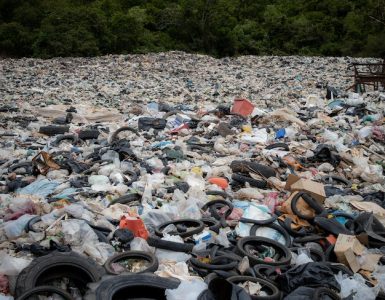In 1862 English metallurgist Alexander Parkes developed the first man-made plastic from cellulose. After 45 years in 1907, the first fossil-fuel plastic is produced using formaldehyde and coal byproducts. Over the years, the plastic discovery was heralded as an innovation, plastic packaging was given a red carpet welcome and became ubiquitous in our lifestyle.
After 90 years, one more discovery proved that all is not well with this innovation when in 1997 Charles Moore discovered the Great Pacific Garbage Patch – a huge concentration of plastic waste floating in the pacific ocean.
Since then the menace of plastic waste has only grown in size. Mainly because of limited alternatives to plastic packaging, we continue to produce millions of tonnes of plastic to store, transport, and protect our products. In that, only a minuscule proportion is collected or recycled, and the rest find their way into the ocean.
The existence of plastic waste is now found in almost all parts of our planet and even in our bodies.
Along with plastic pollution, plastic is produced using petrol and fossil fuel, thereby significantly contributing to climate change. As per a report by 2030, emissions from the plastics industry in the U.S. could overtake emissions from coal power plants.
What is the solution to plastic?
It is a billion-dollar question, fuel-based plastic has to go, yet, outright bans are not the solution, as the relevance of plastics is high from a usability perspective.
We need solutions that replace plastic, that is made with materials that are compostable, marine-safe, and not environment draining.
The current plastic alternatives have many challenges. Take the case of plastic made with corn starch, which is not really compostable and along with it the cultivation of corn requires fertilizer and large amounts of land that could otherwise be used to grow food.
Therefore we need plastic replacement made from a material that is regenerative and does not require too many resources.
Seaweed as the solution to replace plastic

Seaweed is a naturally occurring alga that grows in nearly every ocean, sea, and lake. The marine organism has been used for thousands of years for food, medicine, cosmetics, and fertilizers, among other uses.
In recent times, scientific discoveries have led people to become highly interested in seaweed and its immense potential. Seaweed is extremely important for our environment and has huge relevance in fighting climate change.
You can read more about Seaweed and the five reasons for its environmental significance – here.
One recent addition to the list of its environmentally significant use cases is seaweed plastic alternatives. A slew of biotech companies have entered this space and are developing sustainable and biodegradable plastic packaging using seaweed.
Companies that create Plastic From Seaweed
Kelpi
Kelpi is a UK-based biotech company that leverages the properties of seaweed to create compostable, marine-safe, low-carbon bioplastic packaging.
Kelpi is founded in 2020 by Neil Morris, Professor Chris Chuck, and Murray Kenneth.
Notpla
Notpla is a London-based sustainable packaging company founded in 2014. The startup has created advanced packaging solutions made from seaweed as an alternative to single-use plastic.
In the 2019 London Marathon, the company provided innovative bio-degradable water capsules to runners competing in the marathon. The small little water capsules called Ooho are made using seaweed and can be consumed in their entirety or can be cut open to take the water, the leftover is completely degradable.
The seaweed plastic company was founded by Rodrigo Garcia Gonzalez and Pierre Paslier.
Zerocircle
India-based Zerocircle is making wildlife and ocean-safe packaging materials from locally cultivated seaweed that will dissolve in the ocean after use.
Founded by Neha Jain, Zerocircle seaweed plastic will be able to replace LDPE (low-density polyethylene) and PP (Polypropylene) types of plastic. The Mumbai-based startup has signed up with large CPG companies to manufacture industrial packaging materials using seaweed.
When we spoke to Neha, she mentioned that Zerocircle sources its seaweed from farming communities in the Indian coastal states, of Gujarat, Maharashtra, and Tamil Nadu.
You can hear the full conversation, where she gives the reasons for selecting seaweed to make plastic packaging. She also specified the future plans for the company.
Sway
Sway is a US-based company that delivers seaweed-based, biodegradable substitutes for thin-film plastic packaging.
Founded by Julia Marsh in 2020, Sway seaweed plastic can be used as shopping bags, and wrapping clothes, among others, and once the use is over it can decompose in four to six weeks.
Marea
Marea is an Icelandic start-up that has developed seaweed biopolymers to create a replicable model for thin-film plastic that fully biodegrades. Founded by Julie Encausse while she was undergoing her university course.
ULUU
ULUU is an Australia-based startup that makes a range of natural polymers, PHAs (polyhydroxyalkanoates) using seaweed, seawater, and saltwater microbes.
Founded by Michael Kingsbury and Oceanographer Dr. Julia Reisser, the company uses seawater in its production to reduce its reliance on fresh water.
Want to know more about seaweed?






Thanks for listing orgs that are involved in this initiative… please review this site and consider adding them to the list : https://www.uluu.com.au/
Thank you!
Thanks for the recommendation, we have included Uluu in the list.
What about the 2 pioneers in seaweed packaging film Evoware (2017) and B’ZEOS (2016/17)? Those 2 were on flexible packaging with Eranova to some extension (seaweed plastic bags). Also it is missing companies like Searo (Solublue), Loliware, Flexsea, Kelpy.
Thank you for the update.
Thanks, Guy,
We will certainly look into these companies you mentioned.